How WASCO cultivated a culture with craftsmanship and family at its core.
When Andy Sneed (W.A. Sneed II) was 12 years old wandering around an MCAA trade show with his Dad, he wasn’t there for the education or newest products for mason contractors. He didn’t yet know he would become a mason himself one day. Instead, his focus was drawn to the bright and shiny wares at the early 1970s event -- a color TV in particular. He desperately wanted to win the booth raffle prize so he could take it home as a gift for his mother.
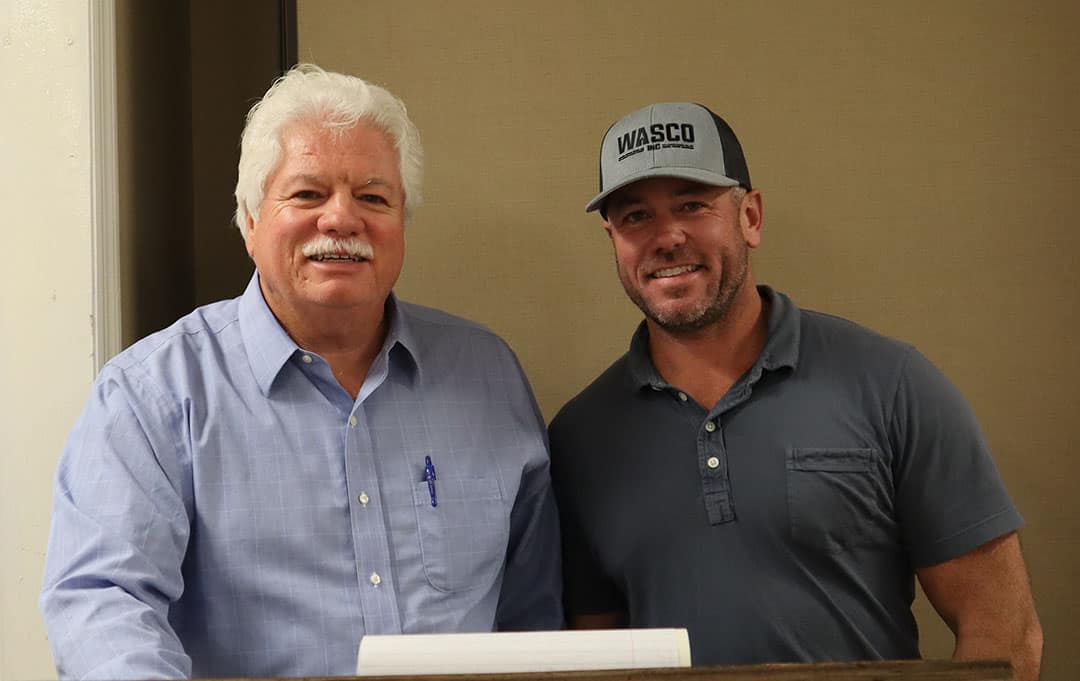
“I signed up for everything I could and as many times as I could,” Sneed II says. Turns out, he won something that day, but he didn’t find out until months later. And to his great disappointment, it wasn’t the color TV.
“About three months later, I learned that I’d won some Sure Klean 600,” he says. “Three drums of it. I ended up selling it at about half-price and put it into a savings account.”
Sensibility and thoughtfulness are two traits that stuck with Sneed and served him well throughout a career that started and ended in the family business after all. In the late 1970s, Sneed II joined his father at work and became the fourth generation of the family business, and the second generation of WASCO (more on that later), and he would go on to lead project teams in the construction and restoration of numerous iconic buildings shaping the Nashville skyline.
"I’ve never done anything else and I don’t know there was ever a time in my life that I thought I’d do anything else."
- Trey Sneed, COO
Building a Southern reputation
The name WASCO is well-known in construction in the Southeast, especially in and around Nashville and Knoxville. The work of Sneed, his ancestors, and his successors is particularly easy to find all over the Music City, from the Ryman Theater, Vanderbilt University, and the downtown Presbyterian Church to CMT’s network headquarters, the Tennessee Performing Arts Center, Belmont University, and hundreds more.
But the WASCO brand isn’t as old as the history of mason contracting in Sneed’s family. That goes back more than 150 years ago, when a man named W.G. Bush founded W.G. Bush & Co. in Nashville in 1867. That business was instrumental in rebuilding cities all across the South following the destruction of the Civil War, as well as establishing Nashville as a major manufacturing hub.
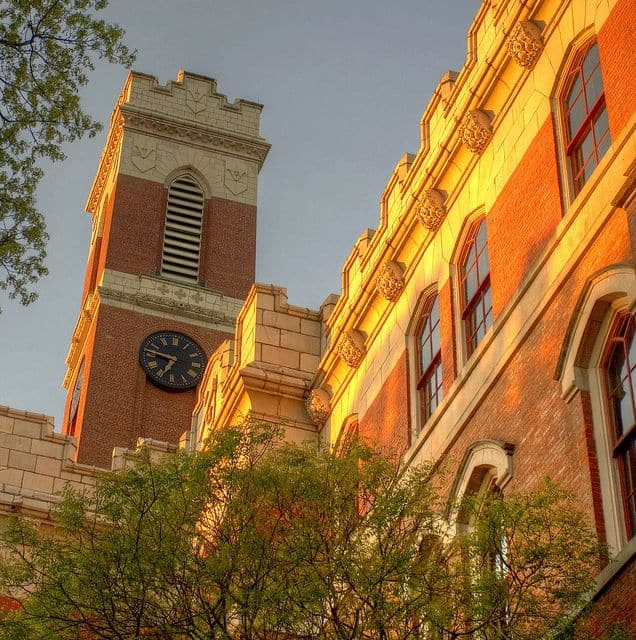
Over the next few generations, some technical details changed in the way the business operated. Family members, cousins and associates broke off and formed new businesses (first the Bush Building Company in 1901, and then WASCO in 1966), and then later re-merged them. Leadership changed hands from father to son-in-law, from uncle to nephew, and then from father to son again. But the commitment to craftsmanship and service was constant; and in fact, their collective knowledge grew in volume and scope as the leaders of this ever-evolving business adapted their services to meet dynamic trends in building materials.
In the first half of the 20th century, for instance, the company adapted to the ability to install native Tennessee limestone, brick, concrete block, marble, and granite. In the 1950s, the next generation advanced their understanding of new technologies and materials such as precast concrete panels.
In 1966, W.A. Sneed (Andy Sneed’s father), founded WASCO (the W-A-S stands for W.A. Sneed and the CO stands for Company) with a focus on adding advanced concrete forming and pouring to its services. In 1977, Sneed, along with Bush Building Company associates Paul Marsh and Bradford Procter, refashioned the company as a masonry subcontractor. Andy joined the business shortly thereafter, extending the Sneed legacy and growing the business and family in tandem.
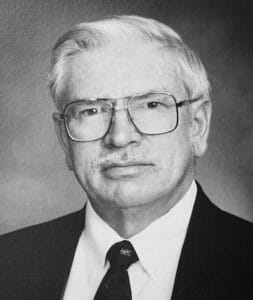
One of Andy Sneed’s most significant contributions to the business is its growth in Knoxville. While the Bush Building Co. (WASCO’s predecessor-of-sorts) had worked in Knoxville in the 1960s to build campus housing at the University of Tennessee and other projects, significant growth in this Southeastern hub didn’t occur until Sneed focused his sights on it. In 1982, Andy opened a branch in Knoxville and began earning work refurbishing important landmarks such as the Tennessee Theater, United States Post Office and the Courthouse. Throughout the 80s and 90s, WASCO’s portfolio in Knoxville grew and grew, as Sneed helped to solidify WASCO’s reputation there as a highly sought-after masonry contractor for new construction, as well as a top-notch restoration contractor for high-profile university buildings.
Today, WASCO operates in six states and employs close to 300 people, making them the biggest masonry company in Tennessee.
WASCO's headquarters in Nashville, Tennessee
Raising the next gen the right way
As Andy Sneed and his wife, Barbara, raised their two sons, Adam and Trey (W.A. Sneed III), they neither pushed them toward construction, nor away from it.
“My wife and I desired that they pick out what they wanted to do for a living, and we strongly encouraged college,” Sneed II says.
That isn’t to say that both boys weren’t on job sites as young kids, absorbing the culture, work ethic and a growing understanding that this was their future.
“I’ve never done anything else and I don’t know there was ever a time in my life that I thought I’d do anything else,” says Trey Sneed, WASCO’s chief of operations. “Long before I was legally able to, I wanted to work on the job sites doing this type of work.”
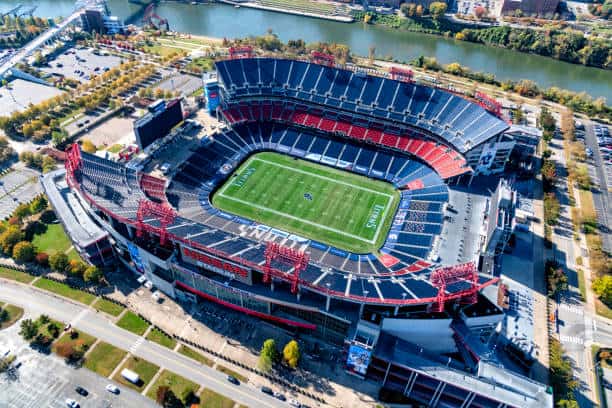
His brother, Adam, WASCO’s CEO, shared a similar sentiment. “We started working at WASCO in the summers when we were 8 or 9 years old,” he says. “And I started full time when I was 18 or 19. I worked as a laborer, all the way up through running work and then superintendent, project manager, to where I am now.”
Their cousin, Brian Procter, wasn’t crawling around job sites like the Sneed brothers were, but he grew up absorbing knowledge about the business too. (Brian’s father, Bradford Procter, took over leadership when W.A. Sneed I passed away in 1997.)
"The three successors are pulling together as a team. It’s pretty satisfying, and it’s hard to step away, but I think it’s time."
- Andy Sneed (W.A. Sneed II)
Trusting the built path
With the next generation of Adam Sneed, Trey Sneed and Brian Procter solidly settled into leadership roles, Andy Sneed, 64, is gradually, maybe a tad reluctantly, stepping away from the business.
“The three successors earn their keep,” Sneed II says. “They own a large portion of the company and it shows that they care. They’re pulling together as a team. It’s pretty satisfying, and it’s hard to step back, to step away, but I think it’s time.”
What makes the transition easier for Sneed II is faith in the systems he helped design at WASCO to weather all sorts of future challenges.
Fostering a positive company culture and succession planning were two items high on his list.
“My hope was to maintain the kind of culture that started with our founder,” he says. “That culture has kind of been tweaked through the generations and through leaders. We just recently went through a detailed strategic planning session where we set out a mission, vision, guiding principles, and the new successors led that strategic plan, and I felt like they bought in. Now I feel comfortable that the culture and legacy will continue, and we want to continue to honor the legacy of my dad, because his company made that for him.”
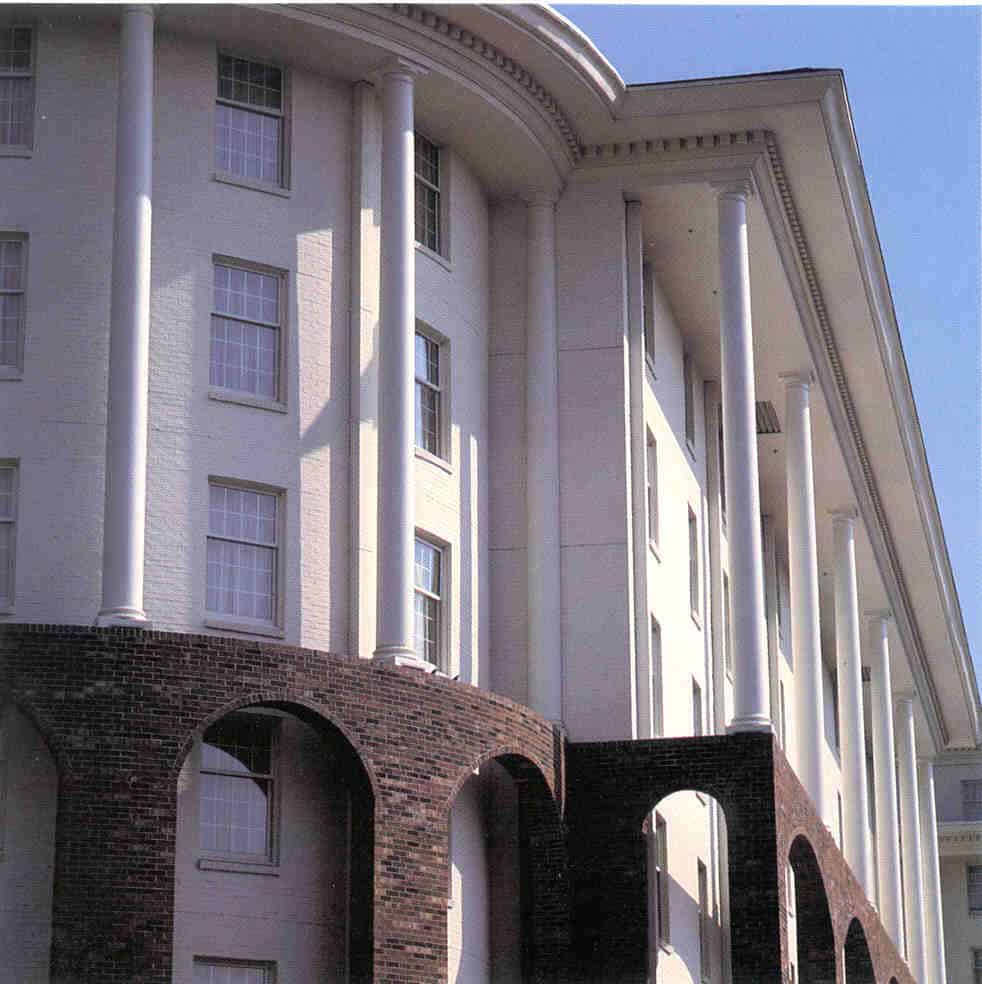
Sneed II also (strategically and ever-thoughtfully) worked to make WASCO an attractive place for people to want to not only work, but stick around and build real careers.
“Part of our culture is about creating careers in masonry,” he says. “We have a rapid advancement training program. One of the classes we teach is cleaning, and we always use Sure Klean for that training.”
“We have a contract with a bricklayers’ union and we train the bricklaying apprentices out at the union,” he continues. “But the rest of our company is open shop non-union. If you certify as a cleaning specialist, you get a 75% per hour raise, and if you tack on more specialties, you can be making pretty good money before you go into your apprenticeship. We hope it’s a way to attract a work force.”
A financial incentive for laborers recognizes one trend in the industry that WASCO is doing what it can to reverse as part of its strategic plan.
"A lot of us can remember when HOD carriers were like a trade. We wanted to bring back that pride and skill to the trade."
- Andy Sneed (W.A. Sneed II)
“In the early 1990s, we were watching the wages between the journeymen and the laborers, which people used to call HOD carriers or mason tenders,” Sneed II says. “They’re the support staff to the journeyman masons. The wage deficit was growing dramatically. A lot of us can remember when HOD carriers were like a trade. We wanted to bring back that pride and skill to the trade.”
WASCO’s internal training program, known as the Masonry Training Institute (MTI) powered by WASCO, was developed in large part to meet that strategic goal.
“We made it a bottom-up program for mentoring and training,” Sneed II says. “We came up with classifications on certain skills that made you a specialist at cleaning brick, or forklift operations, scaffold-building, and so on. We ended up with 17 evaluations that would range anywhere from a quarter to a 75-cent raise. Staff gets training classes to help them excel in education, and on-the-job training happens all the time. The supervisors evaluate the employees quarterly for rapid advancement.”
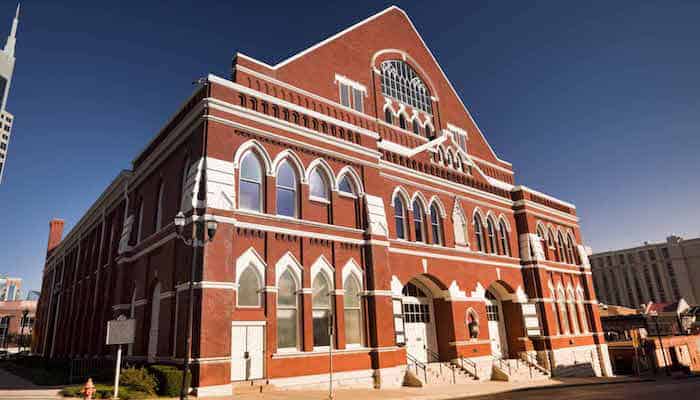
WASCO has already seen evidence that it’s working. “We’ve got our wages getting closer and closer to what the journeymen make, and we’ve got some people that have chosen mason tending as a trade,” Sneed II says.
Once safety was incorporated into the program, they saw results there too.
“We noticed that a majority of our accidents were occurring in the first 90 days of employment, and we started a program called Basic Labor Orientation Course (BLOC),” Sneed II says. “That course almost completely eliminated our 90-day accidents.”
"We don’t have the horror stories of a lot of other family businesses you hear about. I think it’s because we all have common goals and want to continue a legacy that was put down before us."
- Brian Procter, president
Reaping rewards
Some rewards of WASCO’s strategic planning and efforts to foster a desirable culture are yet to be realized, while others are right in front of their eyes.
“We have two and three generations of masons working at the same time,” Sneed II says. “We try to have family outreach within our workforce. It’s very fulfilling. We’re a family business and that extends beyond blood relatives. Oftentimes we call each other Wascovians, which is kind of silly.”
Silly or not, it reflects the type of culture that only exists by purposeful, thoughtful design – and one that everyone agrees on.
“We don’t have the horror stories of a lot of other family businesses you hear about, and I’m thankful for that,” Brian Procter says. “We don’t have those issues. And I think maybe it’s because we all have common goals and want to continue a legacy that was put down before us.”
![]()